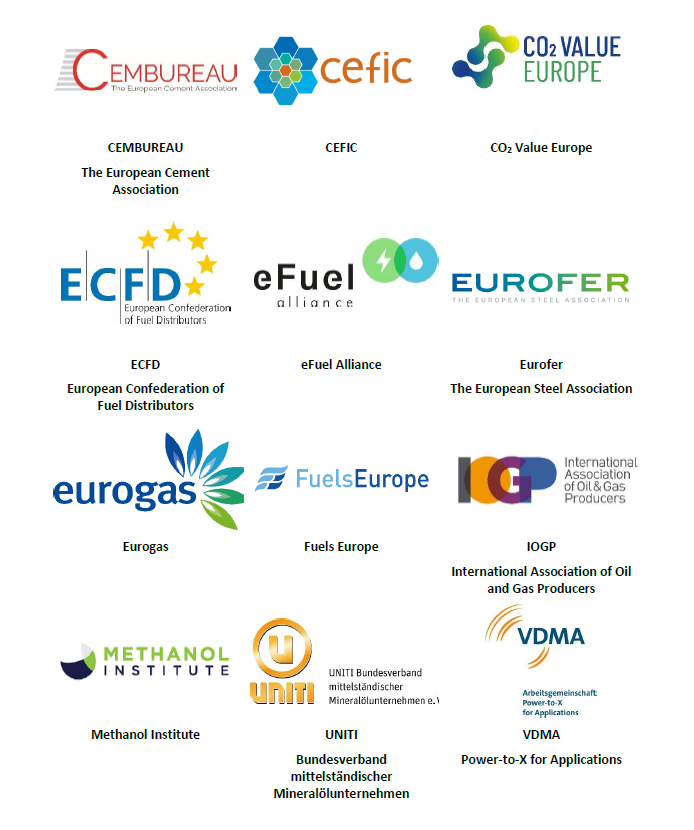Joint Statement on the REDII Delegated Act Art. 28 (5): the Importance of Industrial CCU for Reaching Climate Neutrality
The signatories represent a wide range of industrial sectors for which Carbon Capture and Utilisation (CCU) is a core technology to help reach their sustainability and climate neutrality targets.
The latest IPCC report (Working Group 3, Mitigation of Climate Change) underlines the role of CCU fuels in reducing emissions: “CO2-based fuels and feedstocks such as synthetic methane, methanol, diesel, jet fuel and other hydrocarbons from CCU represent drop-in solutions with limited new infrastructure needs”. The scientific literature considers that “the estimated potential for the scale-up of CO2 utilisation in e-fuels varies from 1 to 4.2 Gt CO2yr−1”1.
The undersigned fully support the Commission's ambitious climate targets. But reaching those targets including RFNBOs sub-quotas from the REPowerEU Plan, European Hydrogen Strategy, revision of the Renewable Energy Directive, ReFuelEU Aviation or discussed in FuelEU Maritime will require legal certainty for investments and support for the scale-up of renewable hydrogen, its derivatives such as synthetic fuels, and underlying technologies such as CCU.
In this context, we are deeply concerned by the Commission's Draft Regulation setting out a methodology for GHG emission savings from RFNBOs and RCFs. The Draft Regulation suggests that CO2 from industrial sources will no longer be considered as eligible for RFNBOs production beyond 2035.
This provision directly jeopardises the commercial viability of projects utilising industrial emissions for a more circular use of carbon that have been and are being launched by our industries to reach ambitious climate objectives and which consider lifetimes of more than 25 years. Such projects will not be able to simply switch the CO2 source and are therefore at risk already now. Notably, we do support the scale up of the use of atmospheric and biogenic CO2, but it is unlikely they will alone supply enough carbon for RCFs and RFNBOs to be produced in sufficient quantity by 2035. In addition, some process emissions will remain unavoidable after 2035. This provision will make the 2030 and 2035 RFNBOs quotas as proposed by EU institutions very hard to reach – and will risk leading to a green investment leakage in a time where investments in the EU are impacted by the energy crisis as well as competing investment schemes such as the Inflation Reduction Act (US).
Recommendation:
- We strongly urge the Commission to reconsider this approach and look at solutions that could ensure that industrial CO2 emissions can be used beyond 2035 to make EU climate targets reachable and help industries to achieve their climate neutrality targets.
- We strongly recommend that these CO2 sources be not limited only to processes listed under the ETS (e.g. the Waste-to-Energy sector should be also considered) and be recognised regardless of their country of origin, provided that no double counting of CO2 avoidance credits has occurred under any other mechanism at the international level. Such an approach would enable the import of RFNBOs from third countries, that have no comparable carbon pricing schemes in place.
- We are also inviting the Commission to allow for the use of different electricity input sources, in particular PPAs within a given time period and to clarify averaging rules for the case of production of mixed fuels so as to allow the retrofitting of conventional fuel installations into RFNBOs and RCFs installations.



